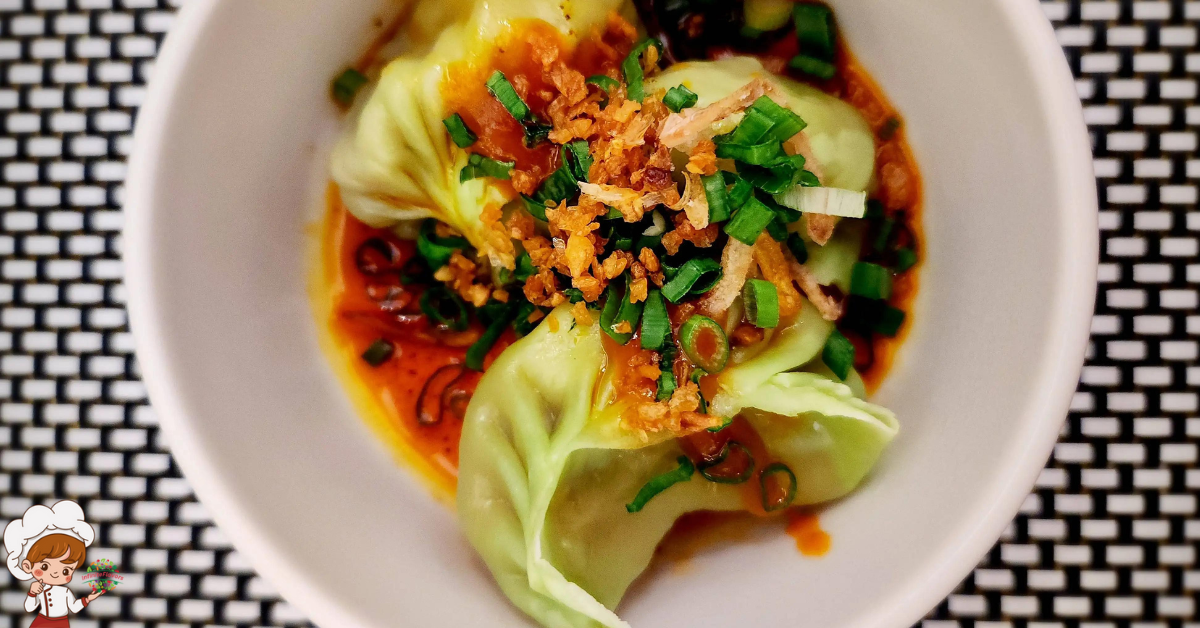Exciting Molecular Gastronomy Organic Food Trend

Molecular Gastronomy Organic Food Trend; Are you curious to explore the captivating world of molecular gastronomy and its fascinating relationship with the organic food trend? Prepare to embark on a culinary journey that will ignite your taste buds and challenge your perception of traditional cooking methods. From the science behind molecular gastronomy to the creative applications in organic cuisine, there is a wealth of knowledge and innovation waiting to be discovered. So, grab your apron and get ready to uncover the secrets of this tantalizing culinary movement.
The Science Behind Molecular Gastronomy
The science behind molecular gastronomy explores the intricate and fascinating relationship between food and science, offering a deeper understanding of the physical and chemical transformations that occur during cooking. It delves into the chemistry behind molecular gastronomy and the innovative techniques used to create culinary masterpieces.
Molecular gastronomy involves the application of scientific principles to cooking, with a focus on understanding the chemical reactions that take place when food is prepared. By studying the chemical components of food and the way they interact with each other, chefs can create unique and exciting dishes.
One of the key aspects of molecular gastronomy is the use of innovative techniques. For example, chefs may use liquid nitrogen to freeze ingredients rapidly, resulting in unique textures and flavors. This technique, known as flash freezing, allows for the creation of delicate and airy ice creams or sorbets.
Another technique commonly used in molecular gastronomy is spherification, which involves transforming liquids into gel-like spheres. By carefully manipulating the chemical properties of the liquid, chefs can create tiny, edible spheres bursting with flavor. This technique has been used to create everything from caviar-like pearls to encapsulated cocktails.
Exploring the Benefits of Organic Food
Organic food offers numerous benefits for those seeking a healthier and more sustainable approach to their diet. When you choose to incorporate organic food into your daily meals, you are not only nourishing your body, but also supporting a more environmentally friendly and ethical food production system. Here are three key benefits of organic farming and organic food certifications that can help you make informed choices for your well-being:
- Healthier Nutritional Profile: Organic foods are grown without the use of synthetic pesticides, herbicides, and genetically modified organisms (GMOs). This means that they contain higher levels of beneficial nutrients such as vitamins, minerals, and antioxidants. By consuming organic fruits, vegetables, and grains, you can ensure that you are getting the most out of your food in terms of nutritional value.
- Reduced Exposure to Harmful Chemicals: Conventional farming practices often involve the use of synthetic chemicals that can have detrimental effects on human health. By opting for organic food, you can minimize your exposure to these harmful substances and protect yourself from potential long-term health risks. Choosing organic can be particularly beneficial for vulnerable groups such as pregnant women, infants, and individuals with compromised immune systems.
- Environmental Sustainability: Organic farming methods prioritize soil and water conservation, biodiversity, and the reduction of pollution. Organic farmers work in harmony with nature, using practices such as crop rotation, composting, and natural pest control. By supporting organic agriculture, you contribute to the preservation of our ecosystems, promote sustainable farming practices, and help combat climate change.
When it comes to organic food, certifications play a crucial role in ensuring the authenticity and integrity of the products. Look for certifications such as USDA Organic, EU Organic, or Canada Organic to guarantee that the food you are buying meets strict organic standards. These certifications provide transparency and give you peace of mind that you are making a genuinely organic choice.
Techniques for Enhancing Organic Flavors
Enhancing the flavors of organic food can be achieved through various culinary techniques that bring out the natural richness and complexity of the ingredients. Organic techniques focus on preserving the integrity of the ingredients while enhancing their flavors. One way to enhance the flavors of organic food is through the use of herbs and spices. These ingredients can add depth and complexity to dishes, bringing out the natural flavors of the organic ingredients.
For example, adding a pinch of fresh rosemary to roasted organic vegetables can elevate their taste and add a savory note. Another organic technique for enhancing flavors is through the use of fermentation. Fermentation not only adds a tangy and complex flavor to ingredients, but it also increases their nutritional value. Fermenting organic vegetables, such as cabbage for sauerkraut or cucumbers for pickles, can create unique and flavorful condiments that enhance the taste of a dish.
Additionally, organic techniques such as slow cooking and braising can bring out the natural flavors of organic meats and vegetables. Slow cooking allows the flavors to develop and meld together, resulting in tender and flavorful dishes. Braising, on the other hand, involves searing the ingredients before slowly simmering them in liquid, which helps to enhance the flavors and create a rich and flavorful sauce. By utilizing these organic techniques, you can enhance the flavors of your organic dishes and truly appreciate the natural richness and complexity of the ingredients.
The Role of Sustainable Farming in Molecular Gastronomy
When it comes to the role of sustainable farming in molecular gastronomy, two key points to consider are the farm-to-table connection and eco-friendly sourcing. The farm-to-table connection emphasizes the importance of using locally sourced ingredients, ensuring that the food is fresh, flavorful, and supports local farmers. On the other hand, eco-friendly sourcing focuses on using ingredients that are grown using sustainable farming practices, such as organic and biodynamic methods, to minimize environmental impact. Both these points contribute to the overall goal of molecular gastronomy in promoting a more sustainable and responsible approach to food.
Farm-To-Table Connection
Sustainable farming plays a vital role in the farm-to-table connection of molecular gastronomy, ensuring that fresh and responsibly sourced ingredients are at the heart of every culinary creation. By embracing the farm-to-table movement and emphasizing local sourcing, sustainable farming brings numerous benefits to the table:
- Enhanced flavor: Locally sourced ingredients are often harvested at their peak ripeness, resulting in superior taste and texture that can elevate any dish.
- Environmental preservation: Sustainable farming practices prioritize biodiversity, soil health, and water conservation, reducing the ecological footprint of the food industry.
- Support for local communities: By sourcing ingredients from nearby farms, molecular gastronomy chefs contribute to the economic development of their communities, fostering a sense of connection and sustainability.
The farm-to-table connection in molecular gastronomy is not just a trend; it is a conscious effort to create exceptional dishes while promoting ethical and ecological values.
Eco-Friendly Sourcing
To ensure the highest quality and environmental responsibility in molecular gastronomy, sustainable farming practices are essential for eco-friendly sourcing of ingredients. When it comes to eco-friendly sourcing, one important aspect is the use of sustainable farming methods. These practices prioritize the long-term health of the environment and promote biodiversity. By avoiding the use of harmful chemicals and pesticides, sustainable farmers ensure that the ingredients used in molecular gastronomy are free from any potential contaminants.
Additionally, sustainable farming also focuses on reducing food waste through various measures such as composting and smart harvesting techniques. This not only helps in minimizing the negative impact on the environment but also contributes to the overall sustainability of the culinary industry. Furthermore, eco-friendly packaging is also a significant consideration, with sustainable options like biodegradable and recyclable materials being preferred.
Creative Applications of Molecular Gastronomy in Organic Cooking
Incorporating the principles of molecular gastronomy into organic cooking opens up a world of creative possibilities. By combining the precision and science of molecular gastronomy techniques with the use of organic ingredients, chefs are able to create innovative and experimental organic recipes that are not only visually stunning but also bursting with unique flavors. Here are three ways in which molecular gastronomy can be applied to organic cooking:
- Spherification: This technique involves transforming liquid ingredients into small, edible spheres that burst with flavor when bitten into. Imagine biting into a perfectly spherical tomato that bursts with the essence of summer in your mouth. Spherification allows chefs to create surprising textures and flavor combinations using organic fruits and vegetables.
- Foams: Using a whipping siphon, chefs can create light and airy foams that add a delicate touch to their dishes. Organic ingredients such as herbs, fruits, or even mushrooms can be transformed into foams that bring a burst of flavor and visual appeal to the plate. Imagine a plate adorned with a vibrant green parsley foam that adds a refreshing note to a dish made with locally sourced organic ingredients.
- Gelification: This technique involves transforming liquid ingredients into a gel-like texture, creating unique textures and presentations. Chefs can experiment with organic ingredients such as fruit juices, vegetable purees, or even broths to create visually stunning and flavorful gels. Picture a plate featuring vibrant organic beet gel cubes that add a pop of color and earthy sweetness to a dish.
Incorporating molecular gastronomy techniques into organic cooking allows chefs to push the boundaries of traditional cooking and create dishes that are not only visually striking but also bursting with unique flavors. By combining the principles of molecular gastronomy with the use of organic ingredients, chefs can continue to innovate and surprise diners with their experimental creations.
Embracing the Future of Organic Cuisine: Trends and Innovations
As you explore the future of organic cuisine, you’ll discover culinary advancements that are pushing the boundaries of traditional cooking. From innovative cooking techniques to the use of cutting-edge ingredients, organic food trends are constantly evolving. Whether it’s the incorporation of plant-based proteins or the exploration of unique flavor combinations, embracing these emerging trends can elevate your organic cooking to new heights.
Culinary Advancements in Organic Cuisine
Culinary enthusiasts and health-conscious individuals alike are eagerly embracing the future of organic cuisine, as innovative trends and advancements in the field continue to redefine the way we approach and appreciate food. Organic ingredient selection and culinary techniques are two key areas where advancements are being made, enhancing the overall experience of organic cooking. Here are three exciting developments in the world of organic cuisine:
- Farm-to-table movement: This trend emphasizes the use of locally sourced, organic ingredients, ensuring freshness and reducing the carbon footprint associated with transportation.
- Molecular gastronomy: Chefs are experimenting with organic ingredients to create visually stunning and creatively presented dishes. This scientific approach to cooking allows for unique flavor combinations and exciting culinary experiences.
- Plant-based cooking: More chefs are exploring the potential of organic vegetables, fruits, and grains to create delicious and satisfying plant-based dishes. This not only promotes sustainability but also provides healthier options for those following a vegetarian or vegan lifestyle.
These culinary advancements in organic cuisine are revolutionizing the way we think about food, offering new possibilities for creating delicious, sustainable, and health-conscious meals.
Emerging Organic Food Trends
With the continuous evolution of organic cuisine, it’s exciting to explore the emerging trends that are shaping the future of organic food. One of the most significant trends is the rise of plant-based diets. As people become more health-conscious and environmentally aware, they are increasingly opting for diets that are centered around fruits, vegetables, whole grains, and legumes. This shift towards plant-based eating not only promotes better health but also reduces the environmental impact of food production.
Another trend that is shaping the future of organic food is the impact of technology. Advancements in technology have made it easier for farmers to grow organic crops and raise organic livestock. From automated irrigation systems to drones that monitor crop health, technology is enabling farmers to produce organic food more efficiently and sustainably.
Frequently Asked Questions: Molecular Gastronomy Organic Food Trend
Are There Any Potential Health Risks Associated With Consuming Molecular Gastronomy Organic Food?
There may be potential health risks associated with consuming molecular gastronomy organic food. It is important to consider the benefits and drawbacks of this trend before making any dietary choices.
How Does Sustainable Farming Contribute to the Overall Taste and Quality of Organic Ingredients Used in Molecular Gastronomy?
Sustainable farming techniques, such as crop rotation and natural pest control, contribute to the overall taste and quality of organic ingredients. These methods enhance flavor profiles and ensure that the food you consume is of the highest quality.
What Are Some Unique and Creative Ways That Molecular Gastronomy Is Being Incorporated Into Organic Cooking?
Incorporating molecular gastronomy into organic cooking involves using innovative techniques and flavor experimentation. You can create unique and creative dishes by combining the principles of organic cooking with the science of molecular gastronomy.
Can Molecular Gastronomy Techniques Be Used to Enhance the Flavors of Non-Organic Ingredients as Well?
Yes, molecular gastronomy techniques can enhance the flavors of non-organic ingredients. Through innovative methods like spherification or foam creation, these techniques can transform the taste and texture of any ingredient, organic or not.
Are There Any Specific Trends or Innovations That Are Currently Shaping the Future of Organic Cuisine?
Future trends and innovations are shaping the world of organic cuisine. Exciting developments in sustainable farming, plant-based alternatives, and food waste reduction are revolutionizing the way we approach and enjoy organic food.
Conclusion
In conclusion, the combination of molecular gastronomy and organic food has opened up a world of possibilities in the culinary industry. By understanding the science behind food and utilizing innovative techniques, chefs are able to enhance the flavors of organic ingredients and create unique and exciting dishes. Additionally, the focus on sustainable farming practices ensures that these organic ingredients are not only delicious, but also environmentally friendly. As the future of organic cuisine continues to evolve, we can expect to see even more exciting trends and innovations in the field.








